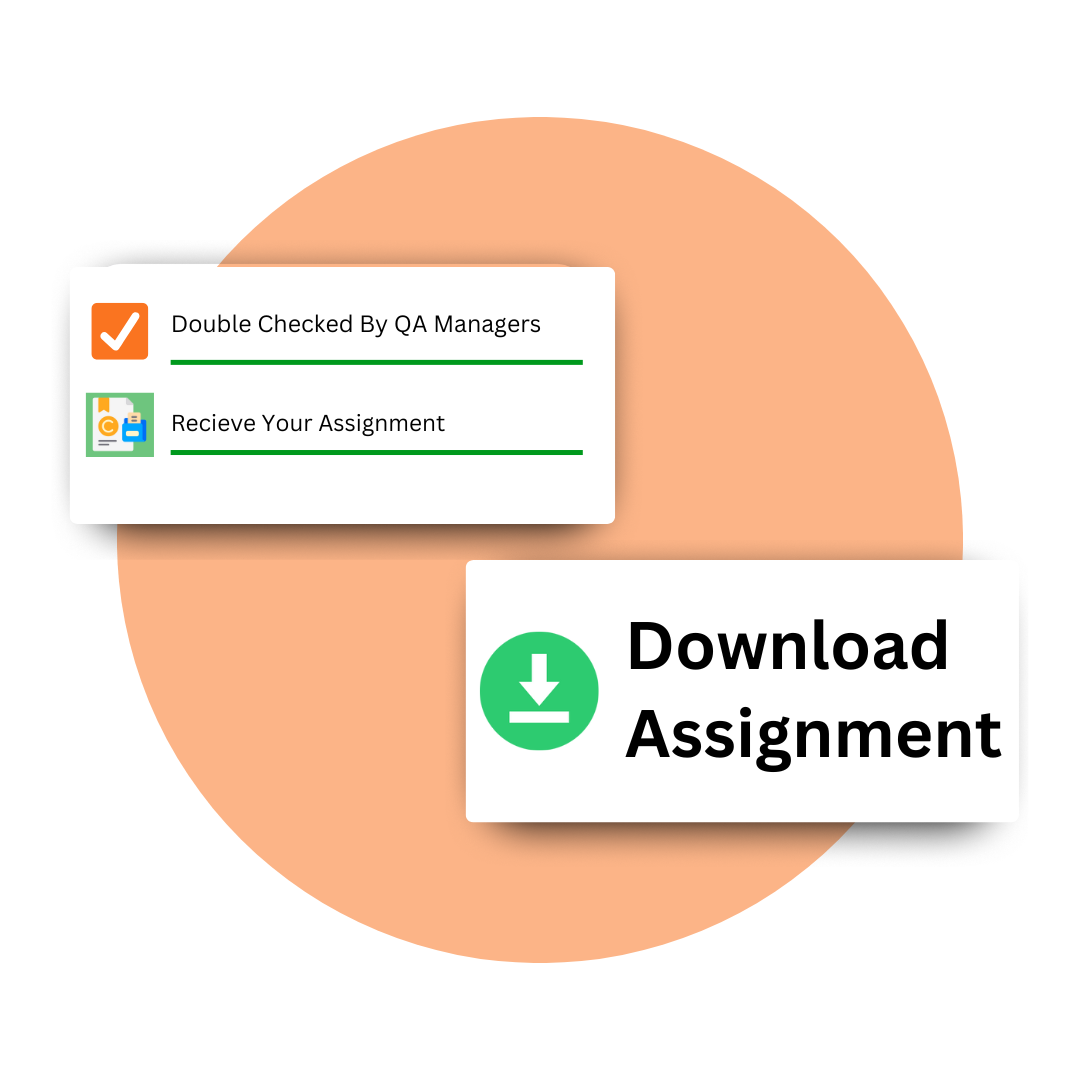Need CMI 524 assignment help in the UK? Follow these 3 easy steps to hire expert writers who provide tailored, AI-free solutions to meet your academic needs.

Fill out a simple form with the instructions and additional details of the unit 524 assignment.

After review, we will provide with you an appropriate quote. Pay the amount in full and choose your writer from the pool.

Our expert writer will complete your assignment before the deadline, you can download it from the mailbox.
Our pool of native experts consists of subject matter experts who have been helping students with their assignments for more than 7 years. They provide expertly crafted assignments within the word limit.
We do not use AI. Our experts research extensively using books and different websites. Our usage of AI is minimal and for confirmation, we also use advanced detection software to detect AI in the content.
Our UK-based customer service is online 24/7 to assist you with any difficulties you have. You can contact us any time of the day with your problem and we will try to solve it as soon as possible.
Delivery before the deadline helps us to provide you time to review and revise it if any issues occur. That’s why we take on-time delivery very seriously and to date, we completed every order before the deadline.
Struggling with your CMI 524 assignments? Our native experts in the UK offer affordable, high-quality assignment help tailored to the Chartered Management Institute (CMI) curriculum. With deep knowledge of management practices and local academic expectations, our team is committed to delivering assignments that meet your course requirements while showcasing your understanding.
By choosing our service, you gain access to expert support that doesn’t break the bank. We offer a personalized, budget-friendly approach to help you achieve your academic goals with confidence. Trust UK-based professionals for assignments that meet your needs and exceed expectations.
When planning a management project, it is important to develop the aim, objectives, and scope of the project.
The research approach for the proposed management project is qualitative. This means that the data will be collected through face-to-face interviews, focus groups, and/or observations. The goal of this approach is to provide a detailed understanding of the experiences and perspectives of those involved in the project.
While quantitative methods can provide important information about trends and patterns, they cannot always capture the nuances and complexity of human behavior. Therefore, qualitative methods are best suited for this particular project.
In order to ensure that the data is reliable and valid, multiple data sources will be used and triangulation will be employed throughout the research process. Additionally, member checks and peer debriefing will be used to promote trustworthiness. With these measures in place, the research team can be confident in the quality of the data that is collected.
The research methods that will be used to collect data and information for this project are interviews, focus groups, and observations. These methods were chosen because they are well suited to exploring the experiences and perspectives of those involved in the project.
Data and information will also be collected from secondary sources, such as project reports, project documentation, and news articles. This data will be used to supplement the data collected from primary sources and to provide additional context for the findings.
Projects are typically undertaken by organizations in order to achieve specific goals. However, projects can also have a significant impact on the individuals and groups who are affected by them. Therefore, it is important to analyze the role of stakeholders in a project.
Stakeholders can be classified into three categories: primary, secondary, and tertiary.
Primary stakeholders: Primary stakeholders are those who are directly involved in the project and who stand to gain or lose from its successful completion.
Role of Primary stakeholders:
Secondary stakeholders: Secondary stakeholders are those who are not directly involved in the project, but who may be affected by its outcome.
Role of Secondary stakeholders:
Tertiary stakeholders: Tertiary stakeholders are those who have an indirect connection to the project. They may be affected by the project, but their involvement is not essential to its success.
Role of Tertiary stakeholders:
After understanding the role of stakeholders, we can see that they play an important part in the management of projects.
When developing a plan for the management project, there are a number of factors that need to be considered.
These are the ten factors that need to be considered when developing a plan for the management project.
When it comes to conducting research for a management project, there are a few key things to keep in mind. First and foremost, you need to be clear about what the project is trying to achieve. What are the specific goals and objectives? Once you have a good understanding of the project’s goals, you can begin developing your research strategy.
One of the most important aspects of conducting research for a management project is ensuring that the data you collect is accurate and reliable.
There are a number of ways to do this, but two of the most effective methods are using primary sources and triangulation.
Once you have collected your data, it’s important to take the time to analyze it thoroughly. This will help you identify patterns and trends that can be used to inform decision-making.
Once you have collected and analyzed your data, it’s time to start interpreting your findings. To do this effectively, you need to be familiar with a variety of tools and techniques.
Once you have interpreted your data, it’s important to communicate your findings to the relevant stakeholders. This can be done through a variety of channels, such as reports, presentations, and memos.
After you have collected and interpreted your data, you will need to use your findings to analyze options for meeting the project’s aim.
Once you have considered all of these factors, you can begin to develop your plan for meeting the project’s aim.
This plan should be designed to minimize risk and maximize the chances of success.
After you have collected and analyzed your data, it’s time to draw conclusions and propose recommendations.
To do this effectively, you need to consider all of the evidence you have gathered throughout the research process. Once you have considered all of the evidence, you can begin to develop your conclusions. Your conclusions should be based on the data you have collected and analyzed.
Once you have developed your conclusions, you can begin to develop your recommendations. Your recommendations should be designed to help achieve the project’s goals.
It’s important to remember that your recommendations should be based on your research findings.
Complete your CMI 524 assignment in the UK effortlessly with just 3 simple steps!
H
Hannah

I used the CMI Assignment Help service for my Level 5 coursework, and I couldn’t be happier with the results. The team was quick to respond and delivered high-quality, relevant content. Their understanding of management practices at this level was evident, and they helped me significantly improve my grades.
B
Benjamin

The assignment help service made my CMI Level 5 journey smooth and successful. Their writers are knowledgeable, professional, and always deliver on time. Thanks to their support, I achieved excellent results in my coursework!
G
Grace

This service provided top-notch support for my CMI Level 5 assignments. Their deep understanding of strategic management concepts and attention to detail made a huge difference in my work. I couldn’t recommend them more!
N
Noah

The assignment support I received for my CMI Level 5 coursework was phenomenal. The team was professional, prompt, and always delivered high-quality work. I’ve already recommended them to my classmates!
L
Lucas

This assignment help service exceeded my expectations for my CMI Level 5 coursework. They offered real-world examples and tailored solutions that improved my understanding and performance. A reliable service for anyone aiming to excel!
O
Olivia

The team provided exceptional assistance with my CMI Level 5 assignments. Their thorough research and practical examples made my submissions impressive. Thanks to their support, I gained a deeper understanding of management theories. Highly recommended!
Unlock your potential with expert guidance on your CMI 524 assignment. Connect with UK-based professionals for tailored support and guaranteed success!
